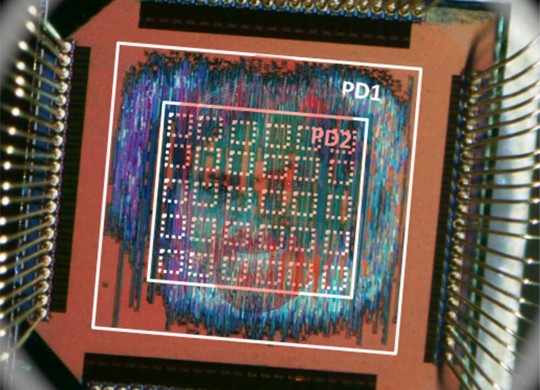Adequate!

In stark contrast to the electronics industry’s pursuit of perfection, researchers the other day unveiled a computer chip that is—get this!—inexact. Yup, inexact. Imperfect. Inaccurate. One that allows occasional errors.
At a conference in Italy on Computing Frontiers, scientists from Rice University in Houston collaborating with others from Singapore, Switzerland, and Berkeley, demonstrated a prototype of the “inexact” chip.
You would rightly ask: “Why?”
Apparently this “inexact” chip is superefficient. About fifteen times more efficient than an “exact” chip by today’s technology. Power and resources are utilized more effectively by the “inexact” version.
The concept is simple: power usage is slashed by permitting the processing components (like hardware for addition and multiplication) to make a few errors. Carefully and cleverly managing the probability of these mistakes, and limiting them to particular calculations, the “inexact” chip designers discovered they could both cut demands for energy and greatly boost performance. They also “pruned” the traditional chip by trimming off the rarely used portions of digital circuits. These pruned chips were faster, used less energy, and were half the size of the parent model.
When all was said and done, chips that deviated from the correct value by about 8% were up to fifteen times more efficient.
At first glance, this sounds like a rather dumb idea, creating a chip that can make mistakes. Obviously, you can’t use an “inexact” chip for applications that demand high accuracy, as with financial trading, or computer modeling. But other tasks are more flexible and can accommodate some amount of error. Scientists are planning to use this “inexact” processor in hearing-aids, cameras, and other small electronics as early as this year.
Some amount of error is tolerable in any system. Even in the human eye. Its components—living, biological tissue—are not optically perfect in their properties. But most of the aberrations are compensated for by brain circuitry.
So also for the “inexact” chip. For instance, in processing images, errors up to 0.5% were undetectable, and errors up to 7.5% still produced discernible images.
All this to say: Adequacy in some of our endeavors and enterprises is far more efficient than attempting to achieve perfection in all of them.
We mortal and fallible creatures will never find perfection in everything on this side of life. That’s not to say we shouldn’t strive for perfection. That’s not to say we shouldn’t give our best shot at what we do. But it is to say that energy and resource conservation is essential if we are to do well in some areas. That means being open to “inexact” operations in other areas. Not all things need perfection. Some do, of course—and each of us will have to figure out what those things are for ourselves. But for most other things, we can get by simply being adequate.
This is a call for prioritization. Deciding what’s important and what’s not. Resolving which battles to fight and which ones to avoid. Determining what calls for perfection (as much as we are able to achieve) and what requires only adequacy.
Such prioritization allows us to conserve energy and save focus for the things that really matter.
“But seek first His kingdom and His righteousness,
and all these things will be added to you.”
Matthew 6:33
Incidentally, the Rice University paper received the highest peer-review evaluation of all submissions to the Computing Frontiers conference.
Life is short. Perfection is impossible. Be wise.
So teach us to number our days,
That we may present to You a heart of wisdom.
Psalm 90:12
Prioritize. Save energy. Glorify God.











 Abe Kuruvilla is the Carl E. Bates Professor of Christian Preaching at The Southern Baptist Theological Seminary (Louisville, KY), and a dermatologist in private practice. His passion is to explore, explain, and exemplify preaching.
Abe Kuruvilla is the Carl E. Bates Professor of Christian Preaching at The Southern Baptist Theological Seminary (Louisville, KY), and a dermatologist in private practice. His passion is to explore, explain, and exemplify preaching.
2 Comments
Thank you!
Perfectionists are not perfecr; nobody is and can be perfect, but they demand perfection from everybody else which makes life difficult!
Have a joyfoul Christmas and most Blessed (not perfect!) New Year.
Imanuel
Thanks, Immanuel!
All God’s blessings on your family as well, this Advent.
Abe